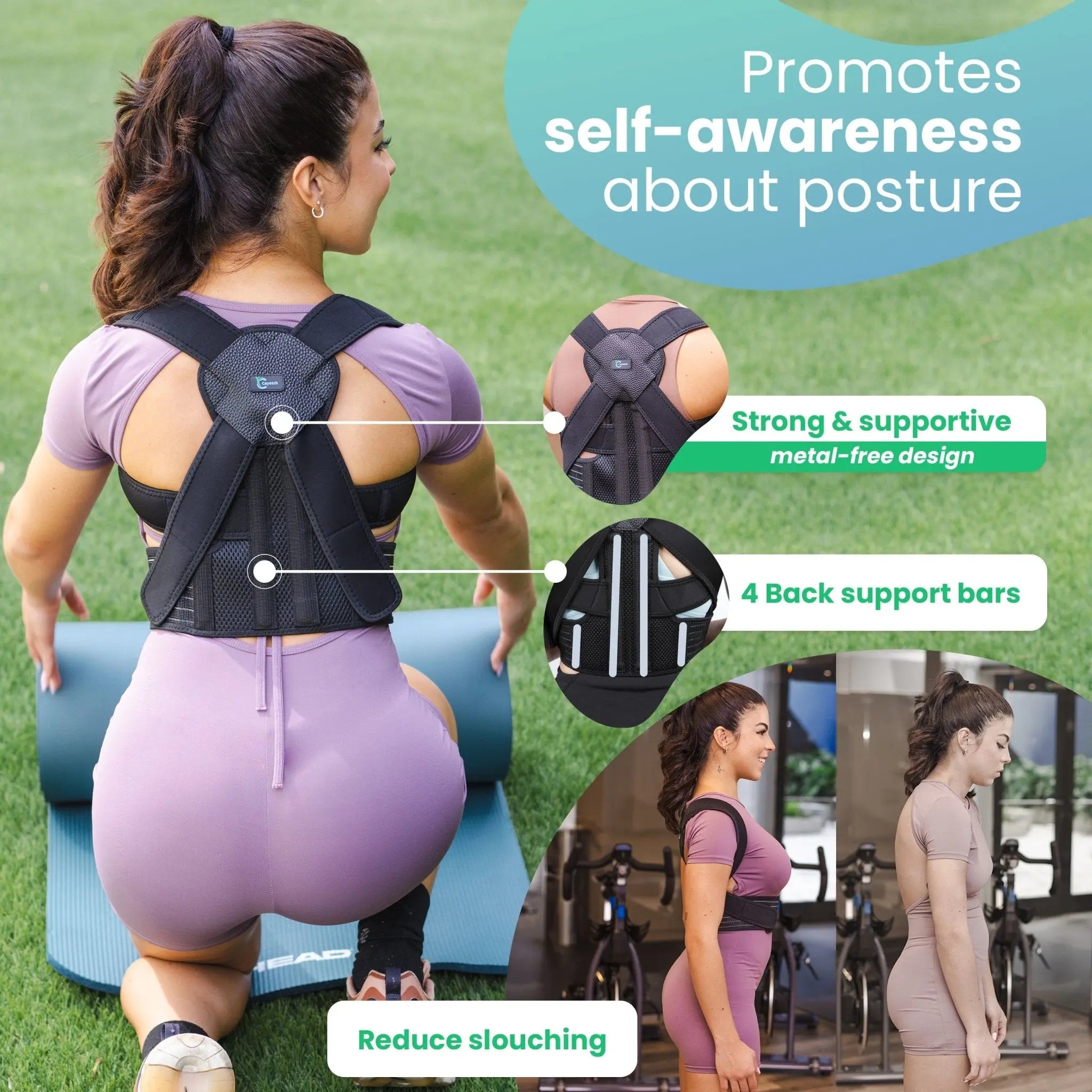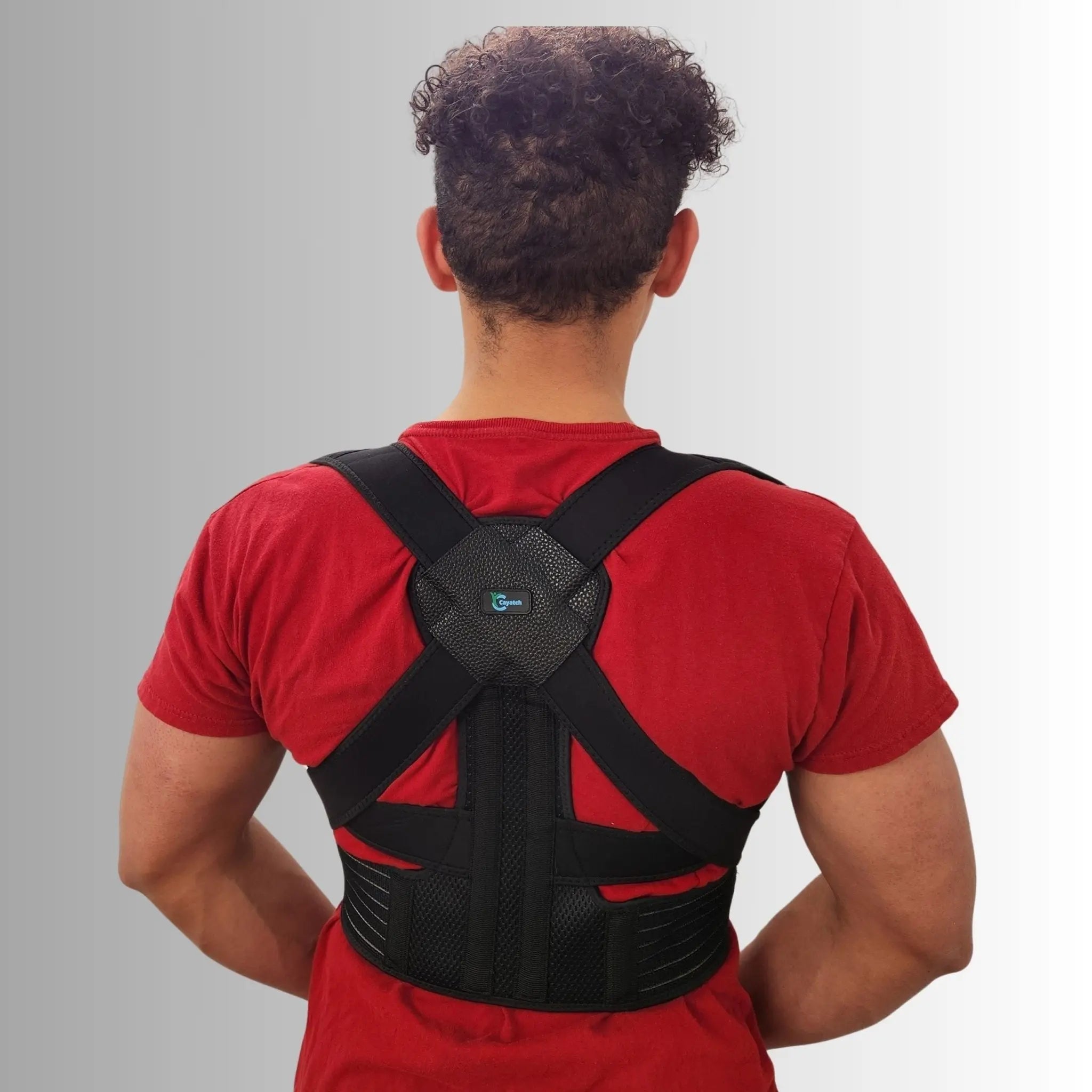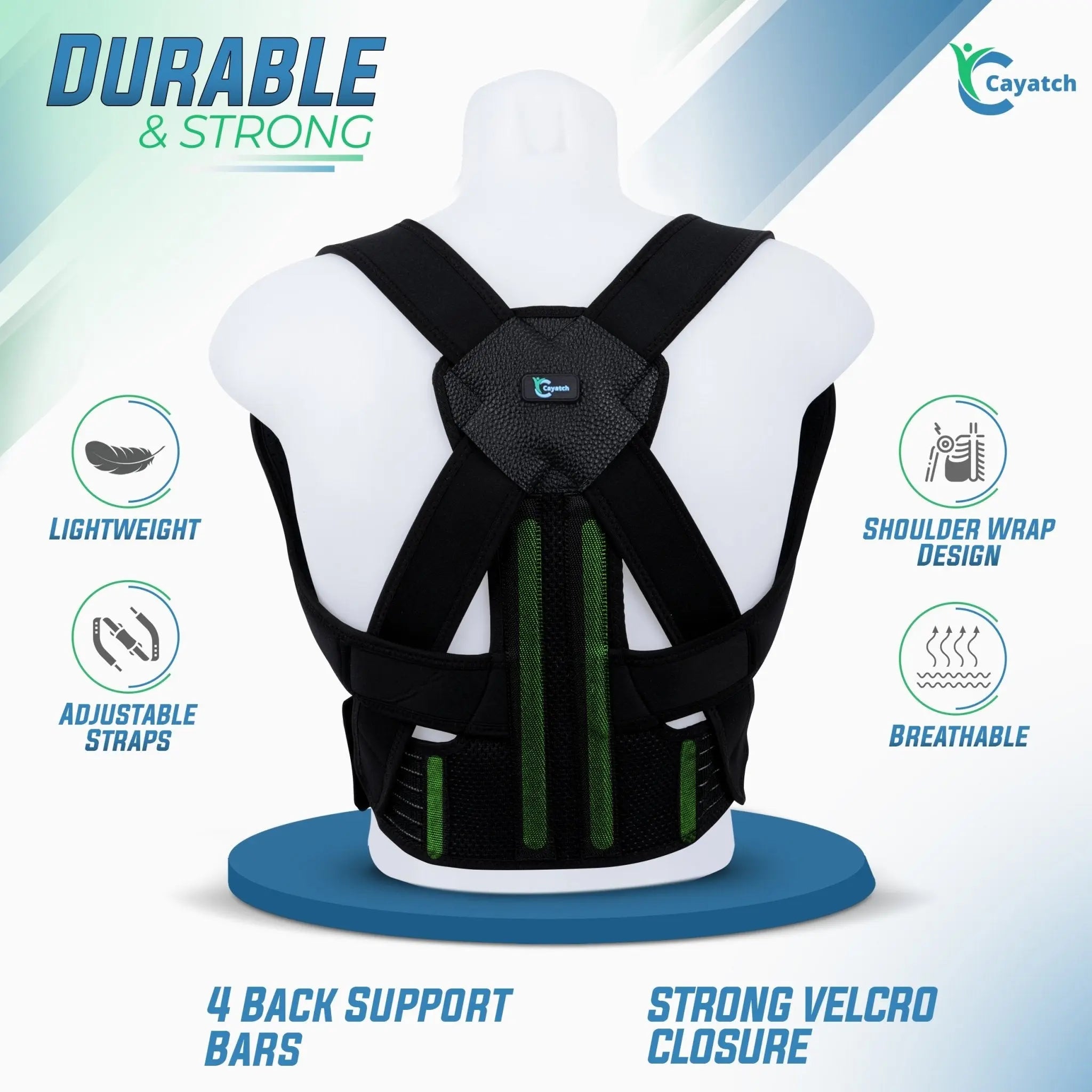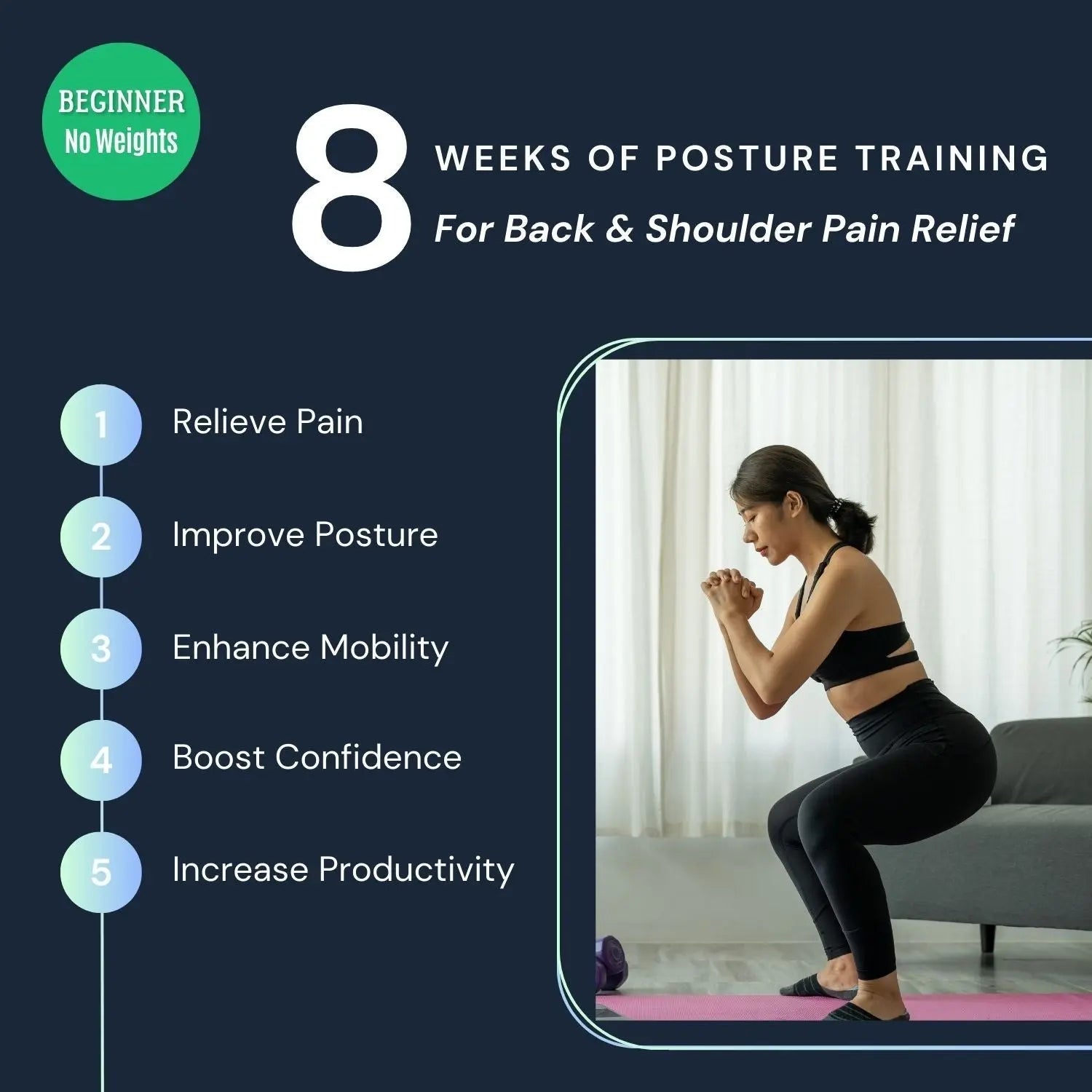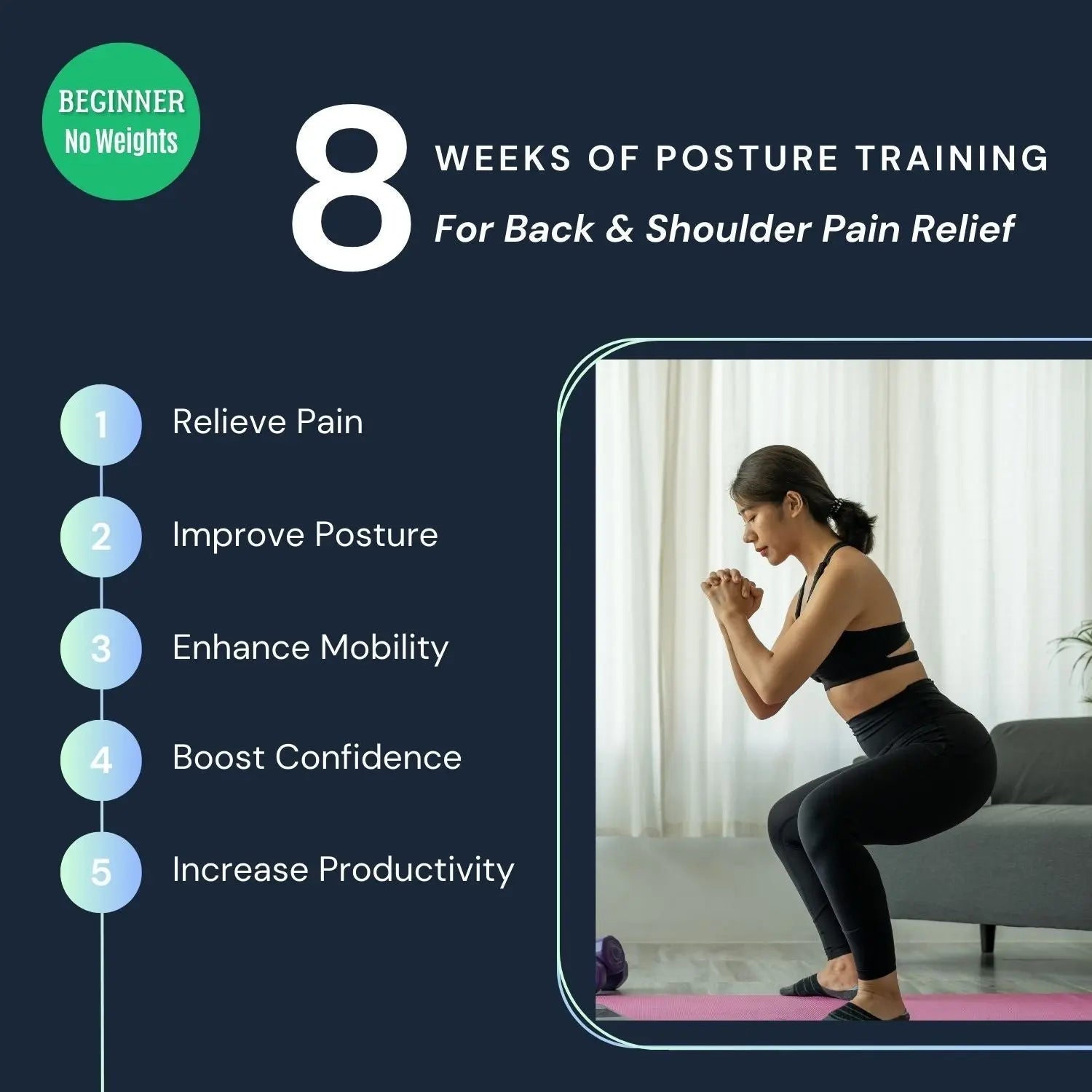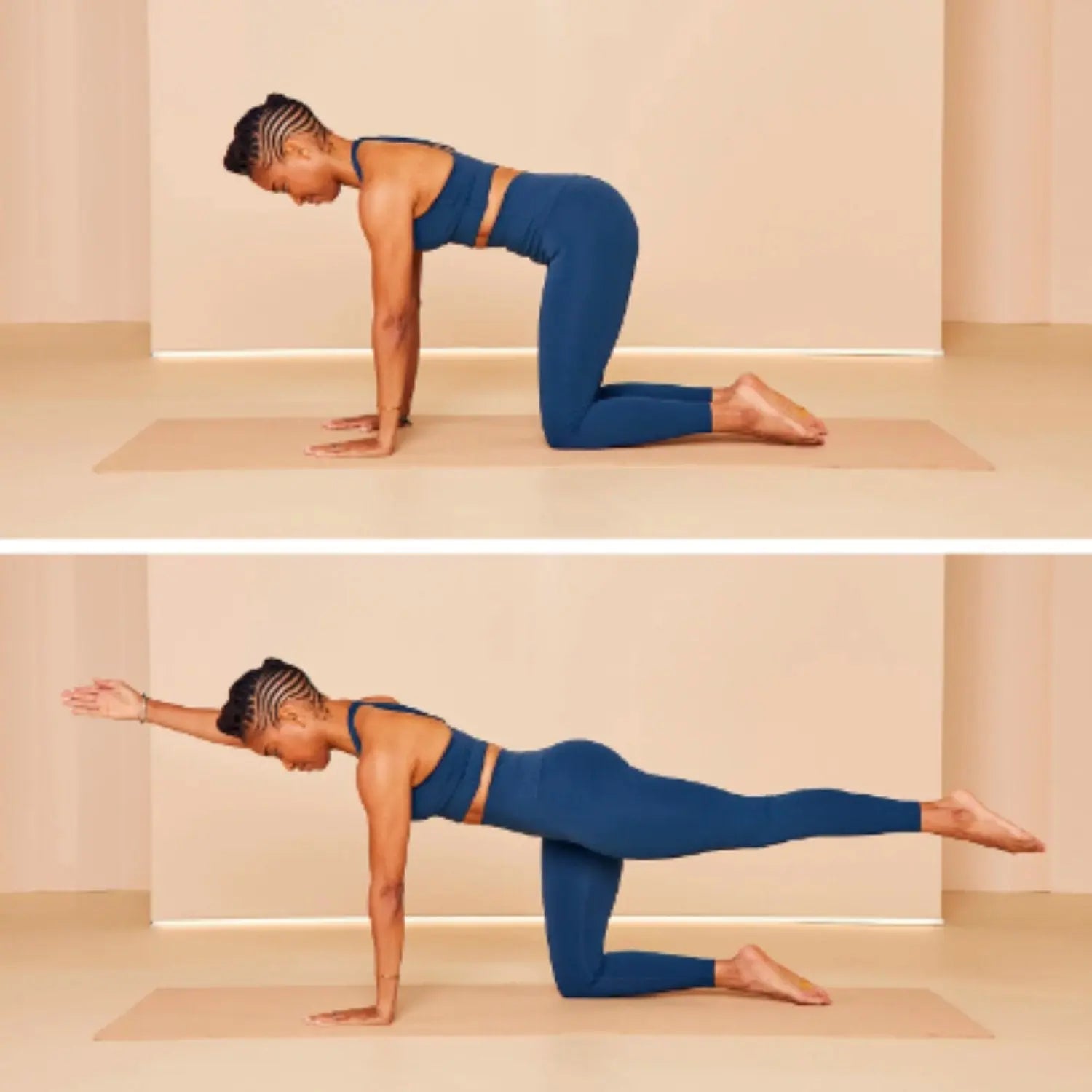Can Bad Posture Cause Headache? Unravel The Real Reason

Headaches are common among people of all ages, can from various reasons. One overlooked factor is poor posture. Prolonged lousy sitting and standing style can contribute to an increase in headaches frequency. So, can bad posture cause headaches?
Headache has a correlation with poor postures. Prolonged poor sitting position at desks, driving for extended hours with lousy posture, or incorrect standing stance significantly contributes to headaches.
Read this comprehensive guide and learn how bad posture causes headaches. Also, we shared tips for improving posture and reducing headaches.
How Does Bad Posture Cause Headaches?

According to the American Migraine Foundation, posture problem is responsible for migraines as well. Moreover, 14% of adults’ experience tension-type headaches every week.
Poor posture generates tension in the upper back, neck, and shoulders, causing headaches and migraines. Such discomfort often creates as a clamp-like pressure around the forehead or the back of the head and neck. It is commonly known as headaches.
Correcting bad posture habits is the key strategy in reducing the muscle tension contributing to headaches.
In our tech-centric era, prolonged periods of hunching over computers and constant phone usage are common. This habitual slouching creates stress and tension on the neck and back, irritating nerves.
The pain creates a domino effect, starting in the neck and shoulders and resulting in headaches. The below signals tell potential presence of headache due to poor posture:
- Neck pain, stiffness
- Lightheadedness
- Difficulty concentrating
- Muscular imbalances
- Pinched nerves
- Compressed blood vessels
- Improper breathing patterns
- Arthritis
- Aggravated temporomandibular joint (TMJ) disorder
Maintaining good posture through exercises, stretching, are a few a proactive approach.
Also, good sitting and standing habits, incorporating exercise, and seeking professional help individuals can reduce the impact of poor posture on headaches.
Let’s learn tips for improving poor sitting, standing and lying stance to reduce headaches in the next section.
12 Tips for Improving Posture and Reducing Headaches
“Stop slouching, stand upright and lower the risk of headaches”, says Dr. Ryan Lee. Follow the below 12 tips.
1. Maintain a Neutral Spine
Maintaining a neutral spine is one of the fundamental keys to preventing headaches. It also promotes overall musculoskeletal health.
Whether sitting or standing, be conscious of your spinal alignment. Visualize a straight line extending from your earlobes through your shoulders to your hips.
Such a simple awareness can significantly reduce your back, neck, and shoulder strain.
2. Ergonomic Workspace

Creating an ergonomic workspace is crucial for promoting good posture throughout your workday.
Adjust your chair, desk, and computer monitor to ensure they are at the right height. Your feet should rest flat on the ground. Moreover, your knees should form a 90° angle when seated.
This setup minimizes the risk of poor posture-related headaches by promoting a natural and comfortable spine alignment.
3. Take Regular Breaks

Incorporate regular breaks into your routine. It will help you minimize the adverse effects of prolonged sitting. Every 30 minutes, stand up, stretch, and move around.
These breaks prevent stiffness and enhance blood circulation, reducing the likelihood of tension headaches.
Simple stretches targeting your neck, shoulders, and back during these breaks can alleviate muscle tension. At the same time, it contributes to maintaining a relaxed and pain-free posture.
4. Exercise and Strengthen Core Muscles
A strong core forms the foundation for good posture. Also, it can significantly reduce the risk of headaches caused by muscle tension.
Include exercises that target your core muscles, such as planks, abdominal crunches, and back extensions.
Strengthening these muscles provides the necessary support to maintain an upright posture. Simultaneously, it prevents undue stress on your back, neck, and shoulders.
5. Mindful Sitting and Standing
Mindfulness in your sitting and standing habits is crucial in improving posture. Be aware of your body positioning during daily activities.
When sitting, avoid slouching and maintain a straight back. Distribute your weight evenly when standing, keeping your shoulders back and chin parallel to the ground.
These mindful adjustments contribute to a natural spine alignment. Also, you can reduce muscle strain and minimizing the risk of tension headaches.
6. Proper Pillow and Mattress
The importance of a proper pillow and mattress cannot be overstated for better posture and headache reduction.
Invest in a pillow that supports the natural curve of your neck. Additionally, ensure that your head and neck align with your spine while you sleep.
Likewise, choose a mattress that adequately supports your spine's natural curvature. This alignment helps prevent waking up with headaches caused by strained neck muscles, contributing to overall well-rested and pain-free mornings.
7. Strengthen Neck Muscles
Targeted exercises to strengthen the muscles in your neck can significantly contribute to improved posture and a reduction in headaches.
Incorporate simple neck exercises into your routine, such as tilting, turning, and resistance training.
Strengthening these muscles enhances their endurance and helps alleviate tension. Moreover, it reduces the likelihood of headaches caused by poor posture.
8. Stay Hydrated

Proper hydration is necessary yet often overlooked aspect of maintaining good posture and preventing headaches.
Water supports the elasticity of intervertebral discs and helps maintain the spine's natural curvature.
Aim to drink adequate water throughout the day to keep your discs and joints well-hydrated. This promotes flexibility, reduces stiffness, and contributes to an overall healthier musculoskeletal system.
9. Adjust Computer and Phone Use
Interacting with your electronic devices can significantly impact your posture. Consequently, your likelihood of experiencing headaches.
Ensure your computer monitor is positioned at eye level to prevent unnecessary neck and upper back strain. Hold your phone at eye level rather than looking down, minimizing stress on the neck.
These adjustments can help maintain a neutral spine position, reducing the risk of tension headaches associated with poor posture.
10. Mind-Body Practices
Add mind-body practices into your routine can be a game-changer for improving posture and alleviating headaches.
Yoga and tai chi emphasize body awareness, flexibility, and balance. These practices strengthen your core muscles and promote mindfulness. It also encourages you to be more conscious of your posture throughout the day.
The relaxation techniques associated with mind-body practices can also effectively reduce stress, a common contributor to tension headaches.
11. Regular Exercise

Regular exercise is a mandatory for overall well-being. It can significantly impact posture and headache prevention.
Cardiovascular exercises, such as brisk walking, jogging, or cycling, improve blood circulation and contribute to the flexibility of muscles and joints.
Include strength training exercises to enhance muscle tone, particularly in the core and upper body. A well-rounded exercise promotes a healthy musculoskeletal system, reducing poor posture-related headaches.
12. Seek Professional Help
When persistent posture issues and headaches become a concern, seeking professional help is required.
Consult a physiotherapist or chiropractor to receive personalized assessments and interventions. These healthcare professionals can identify specific posture-related issues and provide targeted exercises to address them.
Additionally, chiropractic adjustments or physical therapy sessions can contribute to realigning the spine, relieving tension while promoting optimal posture. Seeking professional guidance ensures a tailored approach to your unique musculoskeletal needs.
Frequently Asked Questions (FAQs)
What is the best posture to avoid headaches?
The best posture to avoid headaches is to sit up straight while keeping your body in an upright position.
Your feet will be flat on the ground and your shoulders will remain relaxed. Besides, you need to keep the spine in an upright position.
Can sleeping position cause migraines?
Yes, if you sleep in a way that strains your neck, back, and shoulders, this can cause migraines and even a tension headache.
That’s why, ensuring a proper sleeping position is important to keep your posture content.
What position helps migraines?
You can try the bridge yoga pose to help your migraine. This position reduces shoulder and neck tension while increasing the blood supply.
Can a pillow cause migraine?
If your pillow is too high, this can cause muscle strain and tension. Thus, you will feel headaches and migraines due to having muscle tension for too long.
Conclusion
Hopefully, you understood the connection between headaches and poor posture clearly. You can eliminate headaches and enhance our overall posture by learning the connection between these two factors.
Implement essential ergonomic modifications by integrating targeted exercises. Also, be mindfulness regarding body positioning. Proactively taking measures to sustain proper posture proves crucial for long-term health and well-being.


























